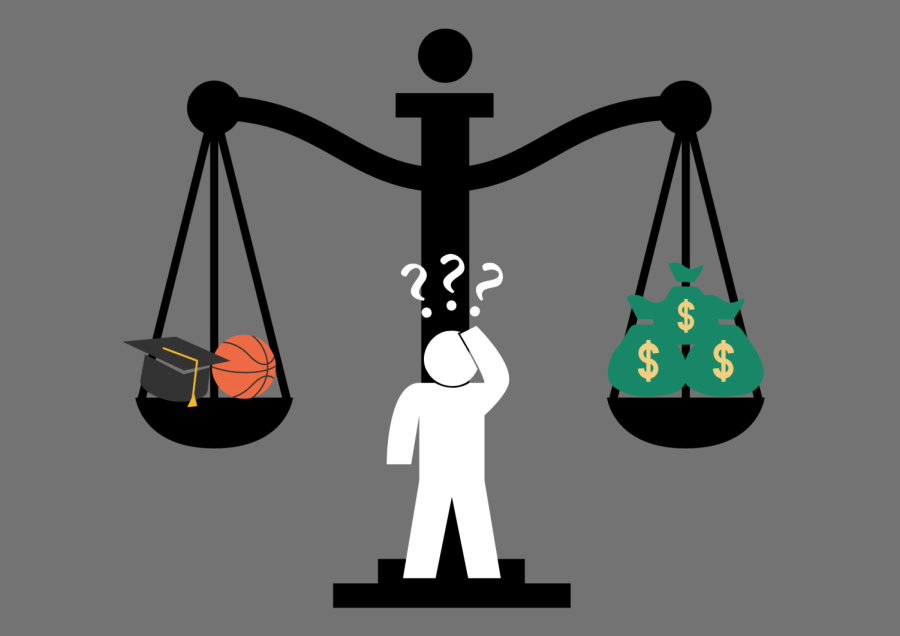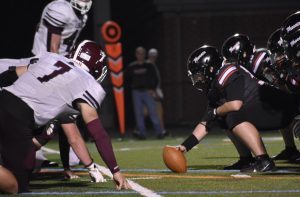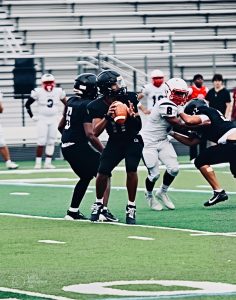Sports and Money: How Do The Two Mix at the Collegiate Level?
In light of a recent Supreme Court ruling stating that college athletes now have the ability to be compensated, the age-old question of whether NCAA athletes should get paid resurfaced.
Are student-athletes entitled to a form of monetary compensation for the revenue and advertising they bring in for the schools? Or is playing sports in college merely a privilege they have that prepares them for the real world and the rest of their lives?
May 19, 2023
The world of college athletics is one built of pure entertainment. Between the rivalries, sports betting, supporting your alma mater, and non-stop excitement, it makes sense why, as a society, we love college sports so much. With tournaments like March Madness, the Orange Bowl, and the College Cup, fans anxiously await the return of college sports every fall. The substantial revenue generated from these games has made fans wonder why college athletes aren’t paid for their part in creating that revenue.
What is the NCAA?
Founded in 1906, the NCAA was created to enforce college athletics rules; however, it was originally called the Intercollegiate Athletic Association and only switched to the National Collegiate Athletic Association, or the NCAA, in 1910. As the world developed, so did they. In 1951, the first colorized college football broadcast occurred. In 1973, colleges were divided into divisions I, II, and III, now commonly known as D1, D2, and D3. Today, there are over 350 member schools, and as a whole, thousands of teams are in each division. As the 2000s approached, leadership in the association focused on their guiding principles: academic success, student-athlete well-being, and fairness. They also began to take a stance on discrimination because of sexual and gender identity after states passed laws allowing it. As the years went on and schools started prioritizing winning over playing fair, the Association had to make numerous changes to how they operated and dealt with rule-breaking schools. Today, they serve as the governing body for all intercollegiate men’s and women’s sports.
What is a college athlete’s lifestyle like?
The time and energy that goes into playing a sport in college is a major commitment and can turn a lot of people off of sports. “Coming out of high school, I was so overwhelmed by soccer that I felt like I was just kind of tired and needed a break,” English teacher and ex-D1 soccer player for Longwood University Shelby Whittington said. Athletes can spend over 40 hours a week practicing and participating in their sport, which creates a difficult situation for many athletes who then have to try and finish their academic work as well with little time.
On top of that, they have to maintain an average GPA in accordance with their school’s policy or complete study hall hours with the team. “It was hard, because you had to step up your game in terms of you are now playing at the collegiate level as well as your academics, so the adjustment was a step up,” English teacher and former D1 lacrosse player Jennifer Beasley said. “You had to level up your time management and the rigor of your athletics and academics.” The curriculum in college, even if it is more focused on things you enjoy, is something that all students struggle with and it is a big learning curve. Couple that with daily practices, sometimes multiple games every week, and managing all the other responsibilities you have as a player, and it is easy for athletes to get lost in the chaos.
Is it possible to equally pay college athletes in the first place?
On average, the NCAA earns about 18 billion dollars annually from college athletics. Top D1 schools can make over 8 billion dollars annually; however, only 7% of that money goes towards scholarships for athletes. In the event that athletes are in fact paid, salaries could differ from sport to sport. Each football player could be paid 360,000 dollars per year while basketball players get paid 500,000 per year. Starting player salaries also have some range, top football positions could make upwards of 1.3 million, and starters in basketball could earn upwards of 800,000 at top schools. “I don’t think there would be a way to equally compensate athletes across all colleges, even across genders,” Whittington said. There would be no way to compensate all athletes properly and equally throughout the sports because of how they are run and how popular they are. Someone will always end up at a disadvantage, creating an impossible situation for colleges to work through.
Title IX makes the question of equal pay a potentially legal one. Title IX protects people from discrimination based on gender, it states that “no person in the United States shall, on the basis of sex, be excluded from participation in, be denied the benefits of, or be subjected to discrimination under any education program or activity receiving Federal financial assistance.” Because of this, a student playing men’s sports could not be paid higher simply because they are in a sport that a woman could not play. This would cause their income to be disproportionate to the amount they bring in, putting them at a disadvantage.
So, should college athletes be paid?
Some argue that because of the intense, almost pro-athlete lifestyle many of these students have to lead, they should be entitled to some form of compensation. However, at the end of the day, these are student-athletes. The student should always come first, and they have the ability to play sports for their schools, which comes with many benefits. Over 150,000 student-athletes receive scholarships from the NCAA, which decreases their debt directly after getting their degree. In addition, they receive academic assistance, medical care, training opportunities, nutritionists, and are able to get ahead professionally because of the connections they make. In the long run, athletes will gain a lot of benefits from the choice they make to play for their schools, ones that will help them throughout the rest of their lives. For these reasons, NCAA athletes should not have monetary compensation for their role as players, regardless of the sport.
“I think college is based on education,” Whittington said. “It’s a wonderful thing to also be able to play a sport [as well].”





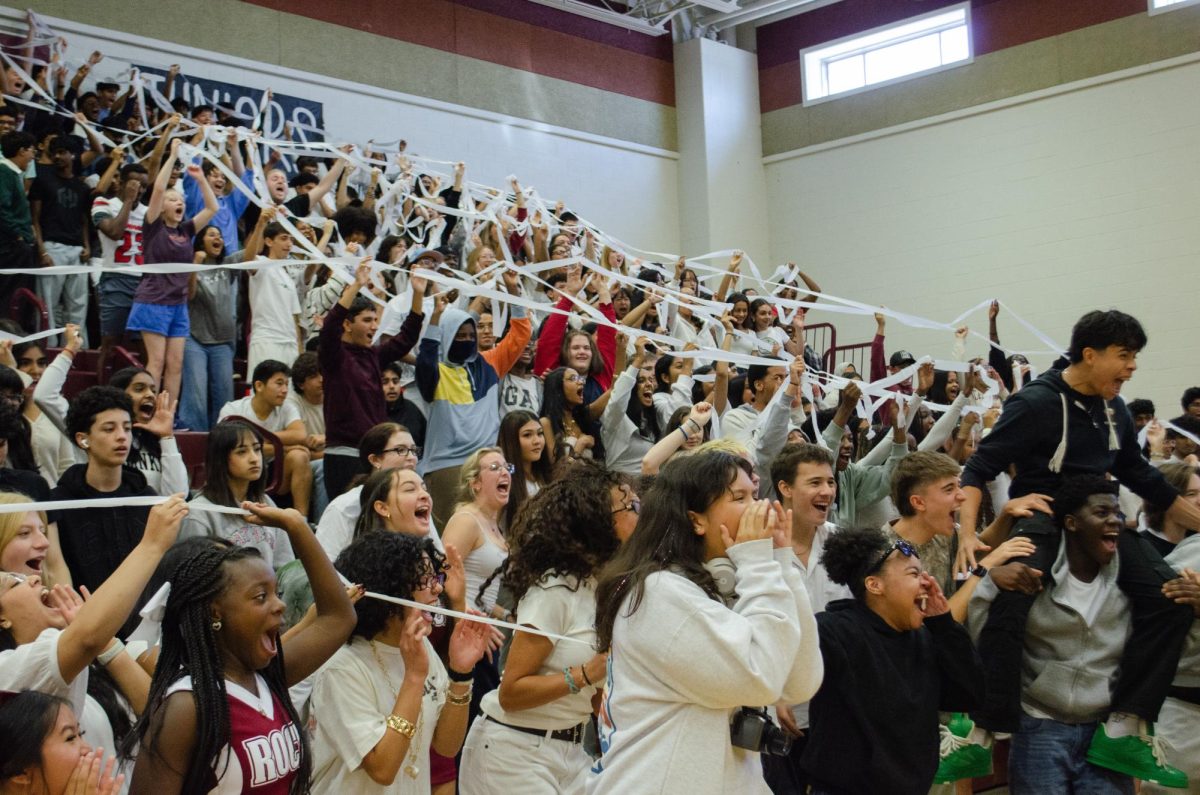









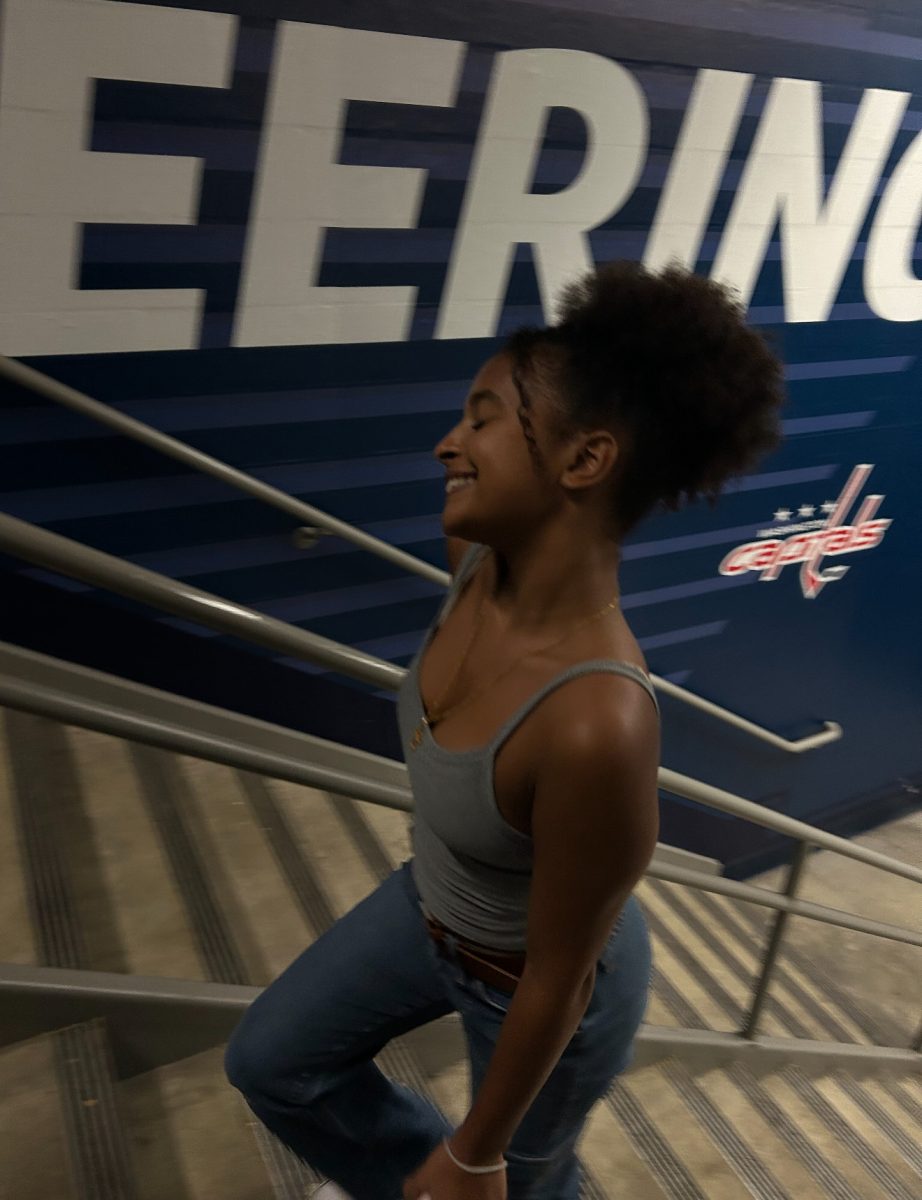
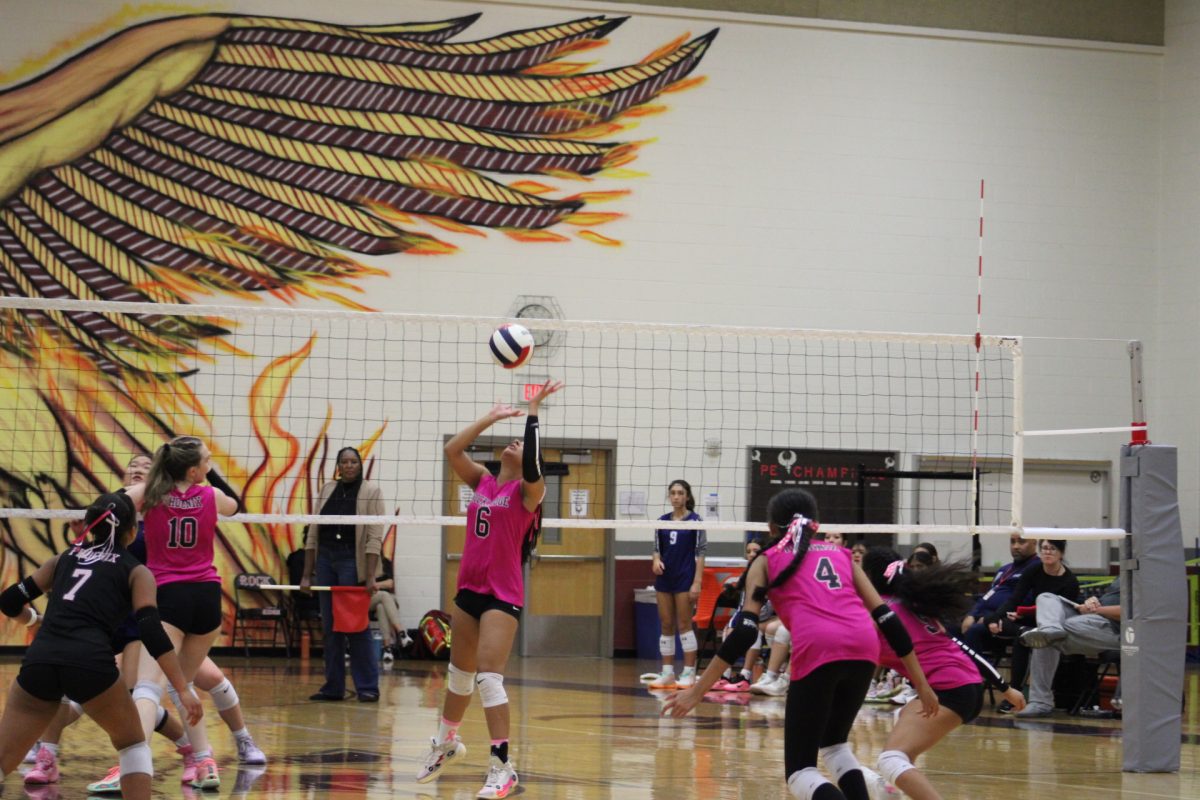



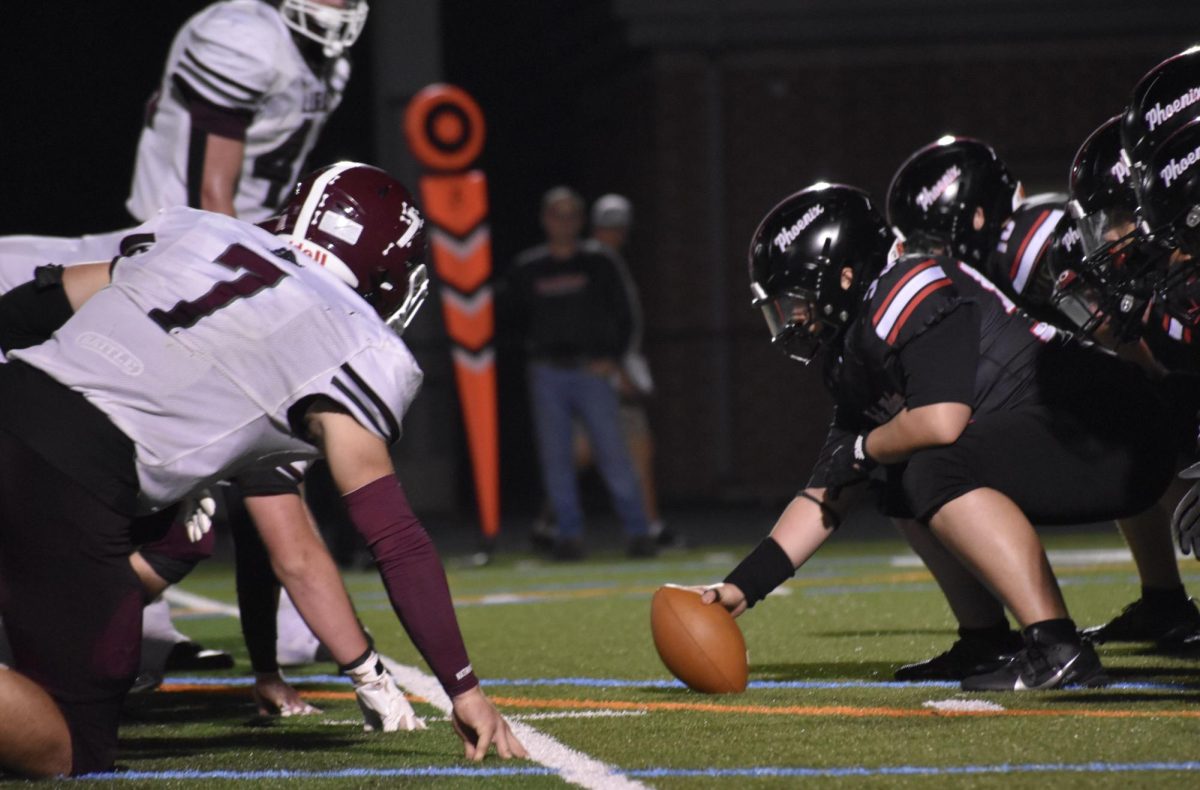





![The Phoenix varsity volleyball team lines up for the national anthem. “We were more communicative [with each other] during this game, and I feel like we kept our energy up, especially after the first set,” senior Jessica Valdov said.](https://theblazerrhs.com/wp-content/uploads/2024/10/DSC_0202-1200x800.jpg)










![Junior Alex Alkhal pitches the ball. “[I] just let it go and keep practicing so we can focus on our goal for the next game to get better as a team,” Alkhal said.](https://theblazerrhs.com/wp-content/uploads/2025/05/DSC_0013-1-1200x929.jpg)


















